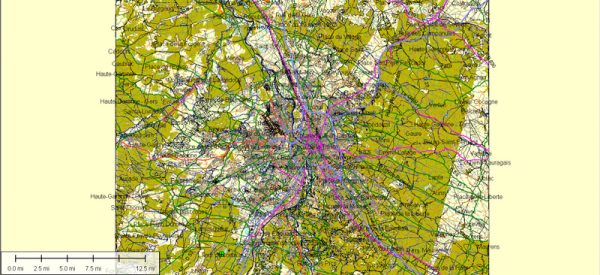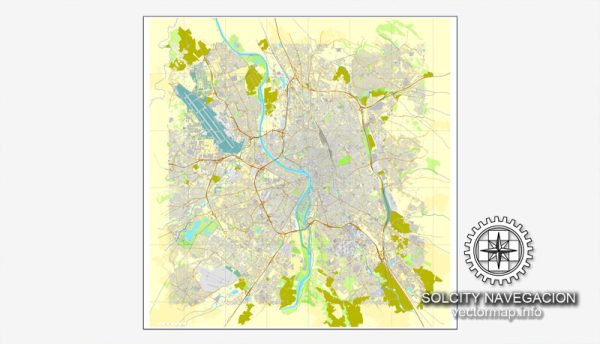Toulouse, located in the southwestern part of France, has a rich history of urban development that spans over two thousand years. Here is an overview of the key phases in the city’s urban evolution:
Roman Period:
Toulouse, originally known as Tolosa, was established by the Romans in the 1st century BCE. The city became an important Roman settlement, marked by the construction of various structures, including a Roman amphitheater, parts of which can still be seen today. The city served as a crucial crossroads in the Roman road network.
Medieval Period:
During the Middle Ages, Toulouse flourished as a center of trade, culture, and learning. The city became a stronghold of the Cathars, a religious group that challenged the Catholic Church. Toulouse was a key player in the development of medieval troubadour poetry and the Occitan culture. The construction of the Basilica of Saint-Sernin, a UNESCO World Heritage Site, also took place during this period.
Renaissance and Early Modern Period:
In the 16th century, Toulouse experienced urban expansion and the construction of elegant Renaissance-style buildings. The Capitole de Toulouse, the city’s town hall, is an iconic structure dating back to this era. Toulouse continued to thrive as a cultural and economic hub.
Industrialization:
The 19th century brought industrialization to Toulouse, transforming the city’s landscape. The expansion of the aerospace and aviation industry, led by companies like Airbus, significantly influenced Toulouse’s economic development. The city became a key player in the global aerospace sector.
20th Century:
Toulouse played a role in the aviation advancements of the 20th century. The city continued to grow and modernize, witnessing increased urbanization and the development of new neighborhoods. Infrastructure projects, including the expansion of transportation networks, contributed to Toulouse’s connectivity.
Contemporary Period:
In recent decades, Toulouse has maintained its status as a major European city. The aerospace industry remains a cornerstone of the local economy, and the city has diversified into other sectors, including technology and research. Urban renewal projects have revitalized certain areas, and the city has embraced its historical and cultural heritage as it continues to evolve.
Architecture:
Toulouse boasts a diverse architectural heritage, ranging from Romanesque and Gothic structures to Renaissance and modern designs. Notable landmarks include the Basilica of Saint-Sernin, the Capitole de Toulouse, and the modernist Cité de l’Espace.
Overall, Toulouse’s history of urban development reflects its resilience, adaptability, and ability to integrate its rich historical legacy with contemporary progress. The city stands as a vibrant intersection of history, culture, and innovation in the heart of southwestern France.



 Author: Kirill Shrayber, Ph.D. FRGS
Author: Kirill Shrayber, Ph.D. FRGS